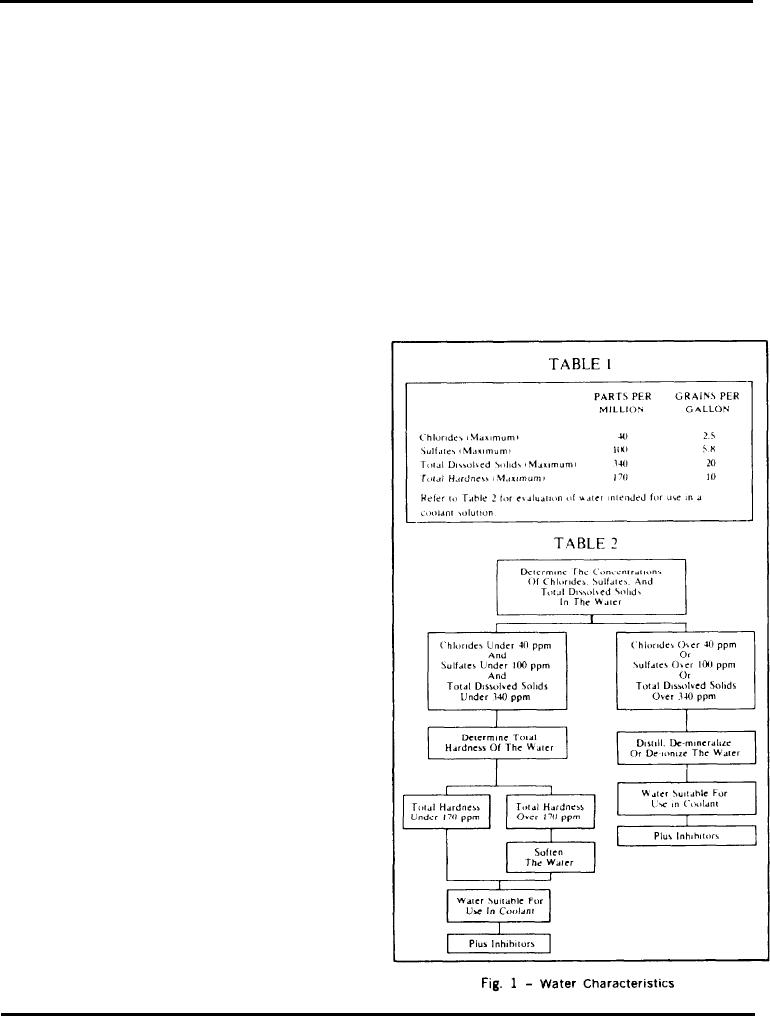
Fuel, Oil and Coolant Specifications
ENGINE COOLANT
deposits, c o r r o s i o n o r a combination o f these.
Engine coolant is considered as any solution which is
C h l o r i d e s , sulfates, magnesium and calcium are
circulated through the engine to provide the means for
among hut not necessarily all the materials which
heat transfer from the various engine components. In
make up dissolved solids. Water, within the limits
general, water containing various materials in solution
specified in Tables 1 and 2 of Figure 1, is satisfactory
is used for this purpose.
as an engine coolant when proper inhibitors are
The function of the coolant is basic to the design and
added.
to the successful operation of the engine. Therefore,
c o o l a n t must be carefully selected and properly
maintained.
CORROSION INHIBITORS
COOLANT REQUIREMENTS
A corrosion inhibitor is a water soluble chemical
A suitable coolant solution must meet the following
basic requirements:
1. Provide for adequate heat transfer.
2. Provide a corrosion resistant environment within the
cooling system.
3. Prevent formation of scale or sludge deposits in the
cooling system.
4. Be compatible with the cooling system hose and seal
materials.
5. Provide adequate freeze protection during cold
weather operation.
The first four requirements are satisfied by combining
a suitable water with reliable inhibitors. When
operating conditions d i c t a t e the need for freeze
protection, a s o l u t i o n o f s u i t a b l e w a t e r a n d a
p e r m a n e n t type antifreeze containing adequate
inhibitors will provide a satisfactory coolant.
WATER
Any water, whether of drinking quality or not, will
produce a corrosive environment in the cooling system.
Also, scale deposits may form on the internal surfaces
of the cooling system due to the mineral content of the
water. Therefore, water selected as a coolant must be
properly treated with inhibitors to control corrosion
and scale deposition.
To determine if a particular water is suitable for use
as a coolant when properly inhibited, the following
characteristics must be considered: the concentration
solids. Chlorides and/or sulfates tend to accelerate
corrosion, while hardness (percentage of magnesium
and calcium present) causes deposits of scale. Total
dissolved solids may cause scale deposits, sludge
Page 81

